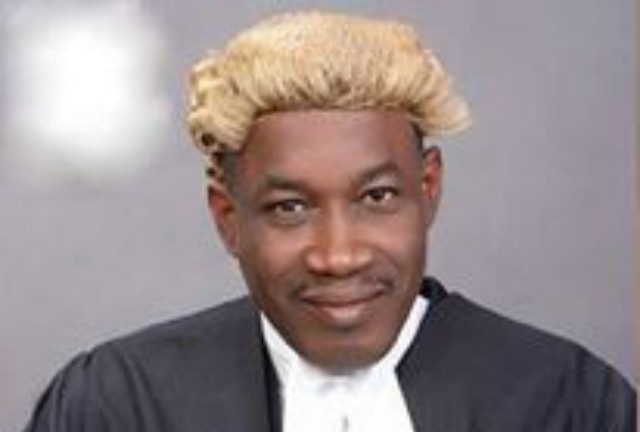A Senior Advocate of Nigeria(SAN), Mr. Oladipo Olasope, has knocked the Nigerian Bar Association (NBA) over its alleged docility and unnecessary silence on the Anti-Hate Speech Bill that has passed second reading in the National Assembly.
The national body of NBA, according to him, should have set up a committee to review the bill, taken a position and instituted litigation against the bill and probably obtain an injunction to stop the bill, adding that branches of NBA as well groups within the body should also go to court over the controversial bill.
Olasope spoke to journalists on the sidelines of special roundtable discourse, with the tagline: ‘Criminalising Hate Speech: The Good, the Bad, the Ugly,’ organised by the Christian Lawyers Fellowship of Nigeria (CLASFON), Ibadan Chapter, held at the Afe Babalola Bar Centre, Ibadan.
The programme, which was chaired by Olasope, also had a member of NBA, Bode Elemide, and chairmanship candidate for December 18, 2019 election of Nigerian Union of Journalists (NUJ), Oyo State Council, Mr. Ademola Babalola, who was represented by a notable member of the union, Mr. Oluseye Ojo, as panelists.
Olasope stated: “We don’t need a particular law on hate speech because it will run contrary to Section 39 of the 1999 Constitution. Concerning defamation, we already have laws here and there, so why are we talking about this?
“Section 24 of the Cybercrime Law also talks about when you publish offensive things about people. We do not have to criminalise and say that is hate speech law. Our democracy should continue to grow and not gagged.
“I expected the NBA to have done something about this issue by now. The bill has continued to grow and passed the second reading. By now, NBA should be in court. NBA is not expected to be docile. The NBA should go to court to challenge it and get an injunction before it goes further. That is what I believe the bar should do. The press should also do the same.”
Olasope, who charged the press to take necessary measures to stop the bill from going further, raised the alarm that the bill would silence the press and make them lose relevance totally, alleging that the bill was particularly aimed at favouring a section of the country, saying the bill goes into issues of favouritism, federal character, catchment area of tertiary institutions and lots more.
“This hate speech bill is obviously been made to shift the balance and favour a section of Nigeria,” he said.
One of the panelists, Ademola Babalola from NUJ, stated: “Honesty, I do not see any justification for Anti-Hate Speech Bill because we already have laws on defamation of character and cybercrimes. What could have been in the bill that the laws on defamation of character and cybercrimes have not dealt with?
“The Nigerian Guild of Editors(NGE) and Nigerian Union of Journalists (NUJ) have come out seperately to condemn the bill and that it is a way to gag the press.
“We are practising democracy as a form of government in Nigeria and the principles of plurality of opinions and views are very central to its success . So, I don’t think the Anti-Hate Speech Bill will respect the plurality of opinions and views. And we live in a plural society. So, the bill should not be allowed to see the light of the day.
“Some people are saying the bill is actually designed to favour a particular tribe in Nigeria on expansionist agricultural agenda, and of it becomes an act, it will abolish Federal Character and catchment areas for admission into tertiary institutions, and may give uncontrollable powers to anti-graft agencies.”
Also, Elemide from MBA, on his part, said he had read a copy of the bill and that it is not the best for the country because it will create more problems in the country than it is trying to solve, adding that “What the bill is saying in some aspects is that if I received two visitors, let’s say one Yoruba and one Fulani. If I gave the Yoruba a bottle of soft drink and the Fulani a sachet of water, I have committed an offence.
“I think an aspect of the bill is saying Nigerians should be treated equally in any part of the country and they should have equal rights with people of other tribes any where they reside in the country.”
